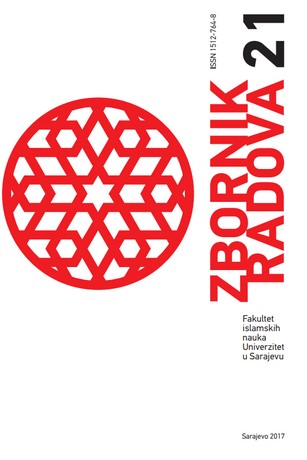FUʼĀD ZAKARIYYĀ I NJEGOVO KRITIČKO MIŠLJENJE
FUʼĀD ZAKARIYYĀʼ AND HIS CRITICAL THOUGHT
Author(s): Enes KarićSubject(s): Review, Islam studies, Government/Political systems, Political behavior, Politics and law, Politics and religion, Nationalism Studies, Sharia Law
Published by: Fakultet islamskih nauka u Sarajevu
Keywords: Qurʼānic interpretation; sharīʻa; application of sharīʻa; Islamist movements; “oil Islam”; ijtihād, intellect; reason; critical thinking;
Summary/Abstract: This essay addresses the main theses in the book Myth and Reality in Contemporary Islamist Thought by the Egyptian philosopher Fuʼād Zakariyyāʼ (1927-2010). A follower of a critical school of thought, Zakariyyāʼ examines the impact of modern governmental and ideological (ab)uses of Islam, sharīʻa, and state adoption of sharīʻa. In his view, faith in God is primarily a moral vocation, so that sharīʻa and the body of sharīʻa law that later developed from the sources of Islam comprise a set of moral and ethical rules for individuals to follow, but without state sanction. He argues that Muslims should rely on contemporary developments, the product of intellect and reason, in organizing their governments and societies. Zakariyyāʼ advocates reading the major source texts of Islam in a dialectical relationship with the conditions of life in which human societies actually subsist.
Journal: Zbornik radova Fakulteta islamskih nauka u Sarajevu
- Issue Year: 2017
- Issue No: 21
- Page Range: 11-34
- Page Count: 24
- Language: Bosnian

